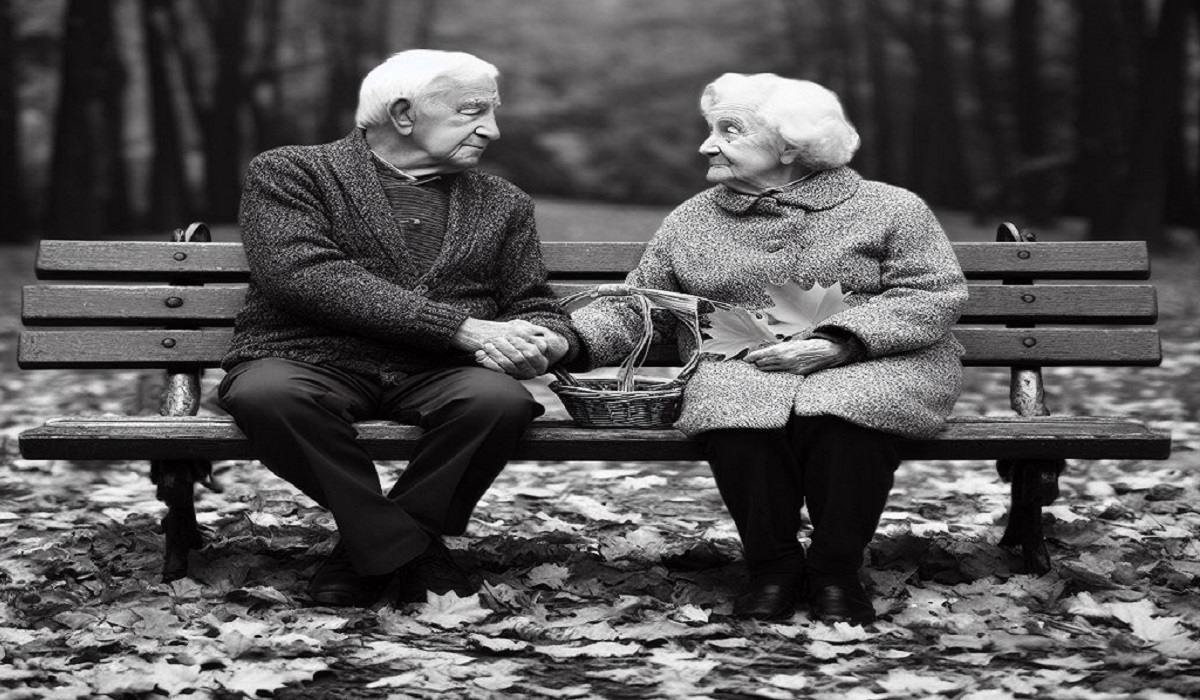Anne Other Plea for Justice: Addressing Elder Abuse in Canada
- Anne Thompson
- Canada
- November 17, 2023

Anne Open Letter to the United Nations Independent Expert on the enjoyment of human rights by older persons
by Anne Thompson
Dear Ms. Claudia Mahler,
Thank you for receiving this letter. I regret that I have to write to you about this urgent and serious matter.
I feel compelled to write to you because I have witnessed two cases of grave violations of the human rights of older persons in Canada. These are:
- A horrific incident of psychological abuse perpetrated by an organisation called Lions Club of Winnipeg Place for Senior Citizens Inc. (Lions Place – 1981), which is a registered charity that operates a residential low-income seniors complex. The organisation informed the residents, many of whom are vulnerable, disabled, or isolated, that the property was being sold, meaning that their rents would no longer be geared to income. The organisation ignored the protests and the distress of the residents, and refused to grant time to for other not-for-profits to organise financing. This caused severe anguish and insecurity for the residents, and threatened their right to adequate housing, social support, and dignity.
- A case of denial of justice for the equal application of the law on all persons, natural persons and corporations alike, on behalf of a group of concerned citizens who sought to challenge the constitutionality and the application of the Protection for Persons in Care Act, which is a provincial law that is supposed to protect the rights and interests of older persons in care facilities. The group alleged that the Protection for Persons in Care Office (PPCO), which is responsible for investigating complaints of abuse in care facilities, failed to investigate allegations of wrongdoing by a corporation called Revera Incorporated, which operated several care facilities in Manitoba. The group provided ample evidence of the harm and neglect suffered by the residents of these facilities, such as witness reports, media reports and the testimonies of several residents, family members, and staff of care facilities in Manitoba, collected by the Manitoba Liberal Caucus and presented in Appendix 2 of their report. [https://www.mbliberalcaucus.ca/wcm-docs/docs/mb_lib_seniors_advocate_report.pdf]
I request that you, in your capacity as Independent Expert on the enjoyment of human rights by older persons, investigate and report on the merit of these allegations, and urge the Canadian government to take immediate and effective measures to prevent and remedy the abuse and neglect of older persons in all settings.

The legal situation of elder abuse in Canada is as follows:
- As of 2023, there are no laws in Canada explicitly and specifically written to address elder abuse in the Criminal Code of Canada, which is the federal law that defines and punishes criminal offences in Canada. However, some provisions of the Criminal Code may apply to cases of elder abuse, such as assault, sexual assault, criminal negligence, theft, fraud, extortion, and criminal harassment. These provisions may cover some forms of physical, psychological, financial, or sexual abuse of older persons, but they may not capture the full scope and complexity of elder abuse, especially when it occurs in care facilities or by persons in positions of trust or authority. This shows a pressing need for comprehensive and explicit laws that specifically address elder abuse in all its forms and contexts, to ensure the safety and dignity of older persons in Canada.
- The division of powers on this matter is shared among the provincial, territorial, and federal governments, which means that there may be different laws, policies, and practices in different regions of Canada regarding the prevention, detection, and response to elder abuse. This lack of a unified approach across all jurisdictions can lead to inconsistencies in the protection of older persons. For example, some provinces or territories may have specific laws or regulations that protect older persons in care facilities, such as the Protection for Persons in Care Act in Manitoba, or the Adult Protection Act in Nova Scotia. However, these laws or regulations may vary in their definitions, standards, and enforcement mechanisms, and they may not be consistent or effective across the country. This demonstrates a pressing need for a unified approach to ensure consistency in the protection for older persons across all provinces and territories in Canada.
- There are sentencing principles [https://laws-lois.justice.gc.ca/eng/acts/C-46/section-718.2.html] that address increasing the sentence imposed upon a perpetrator depending on aggravating circumstances such as their position of authority or trust, as well as on the impact of the offence on the victim due to the victim’s age, health or financial circumstances. These principles are intended to reflect the seriousness and the harm of the offence, and to deter and denounce the offender. However, these principles may not be applied consistently or adequately in cases of elder abuse, especially when the offender is a corporation or an organisation, or when the victim is unable or unwilling to report or testify against the offender. Suggestions to ensure laws are consistently and adequately applied in cases of elder abuse include defining elder abuse clearly and comprehensively in the law in a way that helps ensure that all forms of elder abuse are recognized and addressed; establishing specific provisions for corporations and organisations that commit elder abuse, including substantial fines, sanctions, or loss of registered charitable or of licenses; and, conducting public awareness campaigns to educate the public, judges, prosecutors, law enforcement officers, other professionals involved in the justice system, and all persons involved in health care services delivery on the dynamics of elder abuse to help prevent elder abuse and encourage reporting
- There also exist in Canada laws that prohibit discrimination, such as the Canadian Charter of Rights and Freedoms, the Canadian Human Rights Act, and the Manitoba Human Rights Code. These laws are enforced by Human Rights Commissions at the provincial, territorial and federal levels, which can receive, investigate, and resolve complaints of discrimination, and provide education and awareness on human rights issues. However, these Human Rights Commissions do not address ‘Human Rights’ violations writ large, as discrimination is the only aspect of human rights with which they are concerned. They do not have the mandate or the capacity to deal with other forms human rights violation or of abuse or neglect that may affect older persons, such as physical, psychological, financial, or sexual abuse, or the denial of access to justice or adequate care.
These points highlight the urgent need for a clear and consistent legal understanding of elder abuse across all levels of government. Such an understanding would ensure that all forms of elder abuse are recognized and addressed effectively, providing comprehensive protection for older persons in Canada. According to a Government of Canada report titled Legal Definitions of Elder Abuse and Neglect, published in 2019 [https://www.justice.gc.ca/eng/rp-pr/cj-jp/fv-vf/elder-aines/def/p22.html], “To date there is not a single reported Canadian court decision containing a definition of elder abuse.” This report is based on a comprehensive review of the legal literature and the case law on elder abuse in Canada, meaning that there is no clear and consistent legal understanding of what constitutes elder abuse, and how it should be prevented and prosecuted. Moreover, I am not aware of any national plan, policy or strategy to address violence against older persons, that is overseen by a national mechanism to monitor and implement it. This leaves older persons vulnerable to systemic maltreatment, and isolated in their quest for justice and protection.

Before I present the two cases, I would like to highlight two pertinent facts that are relevant to the analysis:
- Under Canadian law, a corporation is considered to be a legal person who can own property, borrow money, pay taxes, hire employees, and commence or be subject to a lawsuit.
- In Canada, registered charitable status gives an organisation a significant degree of trust and credibility in the community, as well as tax benefits and public funding [https://www.canada.ca/en/revenue-agency/services/charities-giving/charities/registering-charitable-qualified-donee-status/apply-become-registered-charity/deciding/advantages-obligations-becoming-registered-charity.html].
The Government of Manitoba defines elder abuse as any action or lack of action by someone in a position of trust that harms the health or wellbeing of an older person. Elder abuse can happen at home, in the community, in acute and long-term care facilities, and inside of a charitable organisation. Abuse exists in many different forms, such as physical, financial, psychological, neglect, and exploitation. In the following two cases, I will demonstrate how this definition of elder abuse has been violated by organisations that are supposed to provide care and support to older persons, and how the legal and institutional mechanisms have failed to protect them.
The most recent event involves a case of psychological abuse and exploitation of a group of financially vulnerable older adults. These older adults were targeted and lured by an organisation called Lions Club of Winnipeg to take up residence in Lions Club of Winnipeg Place for Senior Citizens Inc. (Lions Place – 1981). These organisations are:
- Registered as a not-for-profit charitable business.
- Operating for the purpose of providing residential low-income seniors complex.
- Owner of a property located at 610 Portage Avenue, Winnipeg, Manitoba, Canada, at the time and place where the affected older adults were residing.
[Information on these organisations can be verified here: Office of the Auditor General Manitoba, (2001). Compliance and Special Audits Social Services Sector. Retrieved: https://www.oag.mb.ca/wp-content/uploads/2019/10/COMP-SPEC-AUDITS_MAR01.pdf]

It is galling and unconscionable that an organisation granted registered charitable status by the Charities Directorate of the Canada Revenue Agency (CRA), such as this Branch of International Association of Lions Clubs—Lions Club of Winnipeg (LCW)—and Lions Club of Winnipeg’s Housing Centres (LHC) would choose to behave in such a way that would cause their residents to experience severe anguish.
The organisation’s behaviour resulted in:
- The removal of these elderly residents’ security of shelter, which is the antithesis of relief of poverty [Government of Canada, Canada Revenue Agency; Relief of poverty and charitable registration; https://www.canada.ca/en/revenue-agency/services/charities-giving/charities/policies-guidance/charitable-registration-relief-poverty.html].
- The threat to the viability of their community socialization and support system, which is essential for their mental and emotional wellbeing.
I have found several articles that wrote about the incident at the Lions Place, and that corroborate my allegations of psychological abuse and distress caused by the LCW. These articles are:
- Abas, M. (2022, September 26). Potential Lions Place sale sparks fears of seniors priced out. Winnipeg Free Press. Retrieved from [https://www.winnipegfreepress.com/breakingnews/2022/09/26/potential-lions-place-sale-sparks-fears-of-seniors-priced-out].
- Sanders, C. (2022, November 9). Lions Place residents continue to push for non-profit ownership. Winnipeg Free Press. Retrieved from [https://www.winnipegfreepress.com/breakingnews/2022/11/09/lions-place-residents-continue-push-for-non-profit-ownership].
- Sanders, C. (2022, November 17). Live up to community-service principles, concerned senior-care experts tell Lions Club. Winnipeg Free Press. Retrieved from [https://www.winnipegfreepress.com/breakingnews/2022/11/17/live-up-to-community-service-principles-concerned-senior-care-experts-tell-lions-club].
- Sanders, C. (2023, January 19). Lions Place residents, supporters protest pending sale. Winnipeg Free Press. Retrieved from [https://www.winnipegfreepress.com/breakingnews/2023/01/19/lions-place-residents-supporters-protest-pending-sale].
These articles report that the LCW informed the residents that their guarantee of rent geared to income protection would be lost within a short notice, as the property was being sold to a private for-profit real estate operating company. They also report that the LCW ignored the public protests and the distress of the residents, and refused to grant time to organise financing or alternative housing options. The articles quote some residents who expressed their fear, anger, and sadness over the situation, and their desire to stay in their homes. They also question the charitable status and the accountability of the LCW, and call for public attention and action to protect the rights and interests of the residents. For instance, one article states that “The residents say they’re being forced out of their homes by an organization that’s supposed to help seniors, not hurt them” (Sanders, 2023, para. 3). Another article states that “The Lions Club of Winnipeg Place for Senior Citizens Inc. (Lions Place – 1981) is a registered charity that operates a residential low-income seniors complex. But the charity’s actions have been anything but charitable, according to residents and advocates” (Abas, 2022, para. 1).

Based on these articles, I conclude that the LCW and LCH, acting with abusive apathy and oppressive indifference, chose to proceed without delay with the sale of the residence and to ignore the protests of the general public, as well as those vulnerable voices in distress facing the loss of home and community, refusing to grant time to organise financing or alternative housing options. This caused severe anguish and insecurity for the residents, threatening their right to adequate housing, social support, and dignity, as enshrined in the Universal Declaration of Human Rights, the International Covenant on Economic, Social and Cultural Rights, and the Principles for Older Persons.
It is doubly painful to read that Lions Clubs International, an organization that prides itself on serving the local community, through the Lions Club pf Winnipeg, has instead caused severe distress and insecurity among the very people they pledge to help. Despite the Lions Club’s wishes to be ‘the global leader in community and humanitarian service’, their actions have demonstrated a stark contrast to this vision and tacit admission to blindness and apathy to the evidence of seniors calling the streets of our city their place to call home. According to research by the Homeless Hub, a national research institute on homelessness in Canada, there is a lack of affordable and accessible housing options for seniors, especially those with low income, disabilities, or complex health needs [https://www.homelesshub.ca/solutions/priority-populations/seniors]. This leads to some seniors becoming homeless or at risk of homelessness, staying in inappropriate or unsafe housing situations, or to early entry into long-term care facilities These actions of the Lions Club of Winnipeg are not only in direct contradiction to their mission statement, but they also undermine the very principles they claim to uphold.
My own attempts to assist in preserving the seniors’ community, and to obtain justice and redress for these human rights violations include the following:
- With the full support of the Lions Place Residents Committee through the Chairperson of LPRC Seniors Action Committee, I created and posted a composition requesting the public’s demonstration of support for the residents of the Lions Place, and urging them to join the protest. It is available online at The Daily Scrum News website here: https://www.thedailyscrumnews.com/lions-club-of-winnipeg-deserves-to-be-stripped-of-charitable-status/
- I reported the incident to the Winnipeg Police Service, and an incident number, R23-16466, was generated and a report completed by a Detective.
- I spoke with an Agent from the Canada Revenue Agency (CRA) and wrote the CRA [Reference Numbers 9143831 and 5443831, respectively] about this demonstrated lack of compassion and respect for the older persons they are supposed to serve, and to question whether LCW remained in compliance with a registered charity’s obligations. [Government of Canada, Advantages and obligations of becoming a registered charity, https://www.canada.ca/en/revenue-agency/services/charities-giving/charities/registering-charitable-qualified-donee-status/apply-become-registered-charity/deciding/advantages-obligations-becoming-registered-charity.html]
- I wrote to the Department of Justice Canada Crimes Against Humanity and War Crimes Section and told them of the LCW behaviour that caused severe mental suffering to the residents. I quoted the laws that say this is wrong, such as Canada’s Crimes Against Humanity and War Crimes Act, S.C. 2000, c. 24 [Link: https://laws-lois.justice.gc.ca/eng/acts/c-45.9/fulltext.html] and the United Nations Convention against Torture and Other Cruel, Inhuman or Degrading Treatment or Punishment [Link: https://www.ohchr.org/sites/default/files/cat.pdf]. The Section replied that they only deal with crimes that happen outside of Canada, not inside.
My actions yielded no positive results. The actions of LCW and LHC, and the lack of action by multiple government departments and ministries, however, are examples of institutional abuse of our community’s senior population—causing severe anxiety and knowingly making them housing insecure in their delicate and vulnerable years of life. Since the federal and provincial governments were in a position to protect these citizens, failing to do so through some form of intervention that would have halted LCW’s and LHC’s stated decisions brings moral equivalency and moral culpability in elder abuse to them all as well.
The real-world, true-to-life consequences of the absence of housing options like Lions Place is that more seniors will become unhoused or be prematurely placed into institutional care facilities—increasingly reported as places of neglect and human rights abuse. According to a report by the Canadian Institute for Health Information [https://www.cihi.ca/en/1-in-9-new-long-term-care-residents-potentially-could-have-been-cared-for-at-home], seniors are entering long-term care facilities early for a myriad of reasons. However, these facilities are increasingly reported as places of neglect and human rights abuse, as evidenced by the findings of the Canadian Armed Forces, who were deployed to assist some of the worst-hit facilities during the COVID-19 pandemic. The report revealed shocking conditions and mistreatment of the residents, such as poor hygiene, malnutrition, dehydration, infection, and lack of medical care. This is the subject of the next matter for which I beg your attention, Ma’am.

I began investigating and acting to halt experiences of harm to persons in long-term care facilities in Manitoba when I became a member of a seniors’ group about five years ago. I heard pain from family members, from nurses and hands-on care providers. I saw the lasting effects on these people. Some I would say were probably suffering from post traumatic stress disorder. These people presented reports of care facility residents’ experiences of harm and of all the failed efforts to stop them. For example, a retired registered nurse and advocate for long-term care reform for 40 years witnessed many incidents of abuse. She shared stories of a relative found with nails that had grown into her toes and become infected. Another woman told of her father left in a soiled diaper for hours, to the point of sores and an infection resulted. A man told of discovering the r*** of his wife through the use of a hidden camera. Most also spoke of their failed attempts to improve the care received by these vulnerable individuals.
I have published my opinions on the goals to achieve in eldercare and what I believe ought to be this sector’s institutional aims on The Daily Scrum News website [https://www.thedailyscrumnews.com/user/annethompson/ Elder Care and Engagement for Canadians; Rights for Humans, Accountability for Persons; and Canada’s Ability and Autonomy Assistance Insurance Program] In my article, “Elder Care and Engagement for Canadians”, I provide a comprehensive vision for the future of eldercare in Canada where I emphasize the importance of engagement and active participation of seniors in their care, advocating for a system that respects their autonomy and individual needs. In “Rights for Humans, Accountability for Persons”, I argue for the need to hold both individuals and corporations accountable for their actions, especially when it comes to the care and treatment of seniors, highlighting the importance of upholding human rights and ensuring that those who violate these rights are held accountable. Finally, in “Canada’s Ability and Autonomy Assistance Insurance Program”, I propose a novel insurance program designed to support individuals in maintaining their autonomy and supporting their abilities. This program represents a proactive and innovative approach to addressing the challenges faced by disabled individuals, including seniors, in Canada. Together, these articles present a clear and compelling vision for the future of eldercare in Canada, one that is centered on respect, autonomy, accountability, and innovation.

This website is also where can be found the basis for our group’s request for investigation and legal case, and the first part of our group’s appeal under the titles Boring as All Hades and Seeking Anne Advocate: The Duty to Protect, respectively. The first article provides a detailed account of the challenges faced by seniors in care facilities. I highlight the lack of adequate protection and the need for more effective measures to prevent abuse and neglect. This article serves as a strong basis for your group’s request for investigation. The second article outlines part one of our group’s appeal, and the steps we’ve taken to seek justice for seniors in care facilities. I emphasize the importance of holding both individuals and corporations accountable for their actions, and the need for legal and institutional reforms to ensure the protection of seniors’ rights.
These five articles collectively present a compelling case for the need for immediate and effective measures to prevent and remedy the abuse and neglect of older persons in all settings, and to ensure their access to justice and protection of their rights. They serve as a call to action for all stakeholders to work together to create a system that truly serves the needs and upholds the rights of seniors.
I have brought the matter of harm to residents in long-term care facilities to the attention of various legal and institutional actors, such as:
- The Protection of Persons in Care Office (PPCO), which is responsible for investigating allegations of abuse in care facilities. Our request for investigation into Revera Incorporated committing wrongdoing was denied. It is clear to us that a more thorough and unbiased investigation process is needed. We have discovered a need to conduct comprehensive investigations into allegations of elder abuse, ensuring that all evidence is considered and that the process is free from discrimination.
- The Manitoba Law Reform Commission (the Commission), whose role is to “improve, modernize and reform the law and administration of justice in Manitoba” [http://www.manitobalawreform.ca/]. We were seeking clarity as to whether the law is badly written or not. The Commission has conducted investigations into elder abuse in the community. However, it has not yet addressed elder abuse in care facilities. We recommend the Commission investigate The Protection for Persons in Care Act for further clarity and potential reform.
- The Office of the Minister of Justice and Attorney General for Manitoba, which forwarded the concerns to the Minister of Health and Seniors, who instructed me to communicate back with the PPCO. We found this frustrating and unhelpful, as we had already exhausted the PPCO’s complaint process and found it to be inadequate and discriminatory, applying the law only on human persons and not on corporations. The Office of the Minister of Justice and Attorney General for Manitoba, among others, ought to take our concerns seriously and act swiftly to address them. The lack of action thus far is disappointing and undermines the trust that the public places in these institutions. We expect our government officials to uphold the highest standards of public service, which includes addressing issues of elder abuse promptly and effectively.
- The Office of the Auditor General-Manitoba (AG-MB), which has only recently released a report on their investigation of the personal care homes—complaint process [https://www.oag.mb.ca/audit-reports/report/investigation-of-the-protection-for-persons-in-care-office-ppco/], confirming serious systemic issues within the PPCO and of incidences of residents in long-term care facilities being slapped, punched, kicked, and sexually assaulted.
- Legal Aid Manitoba (LAM) through their Public Interest Law Centre (PILC), which advocates for justice by representing groups and individuals on public interest issues by providing high-quality advocacy, representing clients in various legal settings, and contributing to law and policy reform in an attempt to obtain a judicial review. We approached them with our sincere belief that either Manitoba’s Protection for Persons in Care Act is badly written or that a public actor needs to be commanded, by Writ of Mandamus, to do their job in order for the law to be applied equally to all persons, natural persons and corporations alike. Although we were told that the case is not without merit, our request for support was declined. Shortly thereafter, the report by the AG-MB confirmed our group’s assertions. We believe that improvements can be made to LAM’s decision-making process. The requirement for a lien on a house to pay for legal aid, and the insistence on “direct knowledge” of any breach of duty, are barriers that prevent many from seeking justice. We suggest LAM review these requirements and consider the precedent set by landmark cases such as Downtown Eastside Sex Workers United Against Violence Society and Council of Canadians with Disabilities. These cases highlight the importance of access to justice for all, regardless of their direct involvement or knowledge of a case.

We objected to the decision of the Protection for Persons in Care Office to not investigate allegations of wrongdoing by the person named Revera Incorporated, which is a corporation that operates several care facilities in Manitoba. We also objected to the decision made by Manitoba to not investigate this same wrongdoing, as stated in our appeal to the Minister of Health and Seniors via the Minister of Justice and Attorney General for Manitoba. These are the two underlying decisions for which we were asking LAM for support, alongside an examination of the data and facts accompanying the original allegation of wrongdoing as we attempted to access justice in Canada. We explained the reasons and the grounds for our request for a judicial review, and the urgency and the public interest of the matter.
We do not understand why LAM would demand a lien on my house to pay for legal aid, when our grassroots non-profit group want to report a transgression of law by an organisation responsible to prevent abuse to persons in their care facility. This is unfair and unconscionable. The Manitoba Department of Justice says that private citizens have the right to bring criminal allegations to court, and that denying this right “raises access to justice issues.” [https://www.gov.mb.ca/justice/crown/prosecutions/pubs/private_prosecutions.pdf}
LAM also insisted that one in our group needs to have “direct knowledge” of any breach of duty. This surprized our group as just the year before in Canada (Attorney General) v. Downtown Eastside Sex Workers United Against Violence Society [https://www.canlii.org/en/ca/scc/doc/2012/2012scc45/2012scc45.html], a landmark case on public interest standing, the Supreme Court of Canada held that:
- There does not need to be a directly affected plaintiff to establish a “concrete and well-developed factual setting” to satisfy the “reasonable and effective means” factor.
- Public interest litigants may be able to rely on directly affected non-plaintiff witnesses or experts to support their case.
- The courts should be cautious about using “the blunt instrument of a denial of standing” to dismiss public interest claims.
The judgement granted locus standi to a third party in that case because of the prominent access to justice barriers facing poor, vulnerable people, highlighting that these barriers merit particular weight in the balancing exercise.

The main takeaways I am hoping you understand from this letter are that elder abuse has clearly occurred and has been evidenced in the Manitoba Liberal Caucus Seniors Advocate Report. (January 2021); Appendix 2: Family & Residents’ Accounts page 27, and in the AG-MB report, and yet all other persons and my efforts to access justice through all available legal means and laws have been ignored, denied, or stymied (local police, RCMP, provincial attorney, PPCO, PILC, etc.) and that, in Canada, the laws are not being applied equally upon all persons: natural persons and corporations alike.
Therefore, I request that you, in your capacity as Independent Expert on the enjoyment of human rights by older persons, investigate and report on the merit of these allegations, and urge the Canadian government to take immediate and effective measures to prevent and remedy the abuse and neglect of older persons in all settings, and to ensure their access to justice and protection of their rights.
Thank you very much for your time and consideration of the material presented and the request made of your office. I hope to hear from you soon and to receive your support and guidance on this matter.
Encouragement, Enrichment Empowerment for All!
Ever your humble servant, I remain,
Anne








